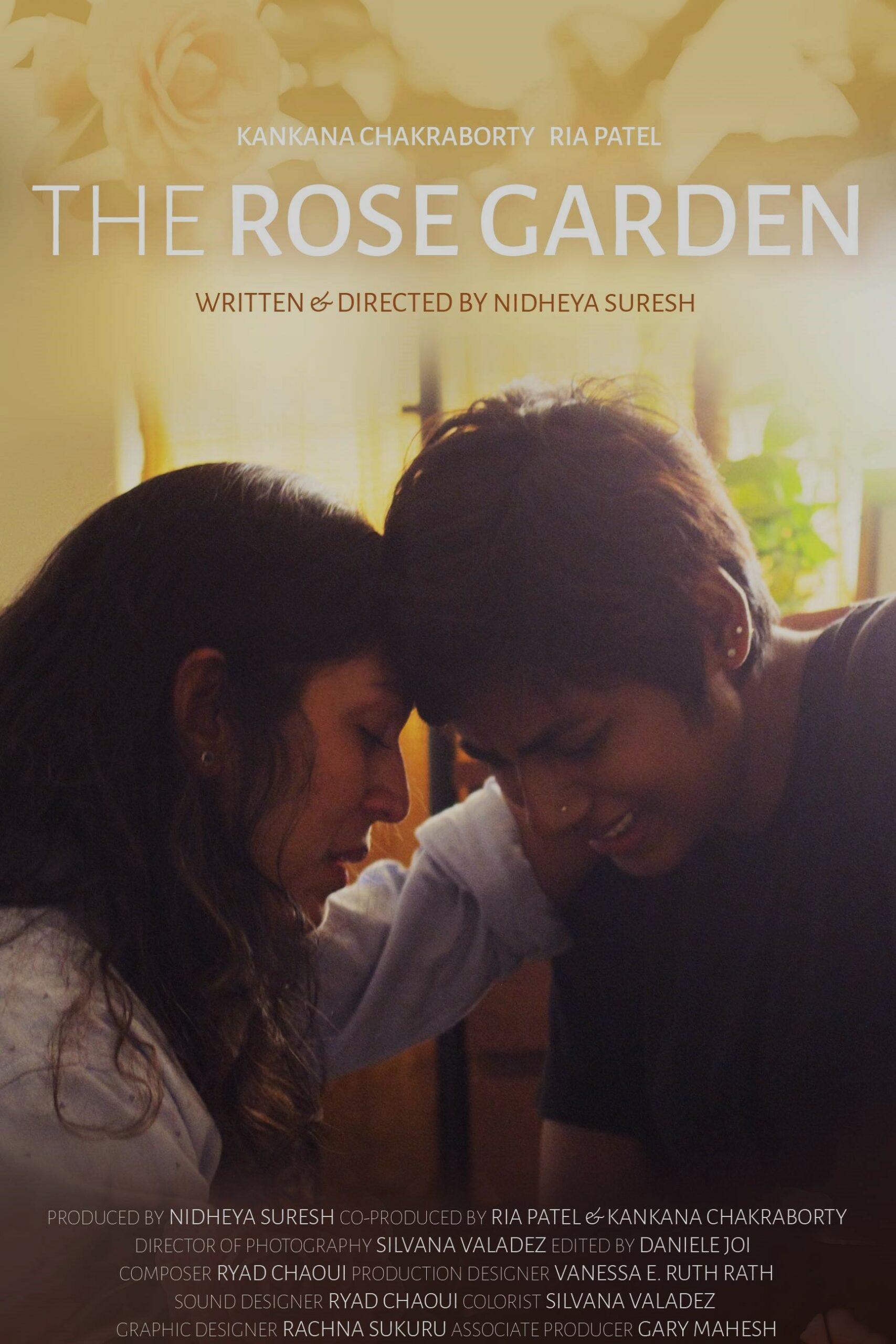Traditionally, Indian culture has emphasized the importance of family bonds through a set of values. However, these bonds undergo changes as time progresses. In this vein, the film, directed by Nidheya Suresh in the United States, consists of a concise fifteen-minute narrative entitled ‘The Rose Garden’ with an original screenplay. The story unfolds within an American context, but primarily focuses on Indian characters. By juxtaposing Indian values with a foreign backdrop, the film is infused with profound significance.

In ‘The Rose Garden’, the narrative begins with the tragic death of the central couple of the Thomas family in a road accident. Two daughters make up the family unit, the elder of whom has firmly established herself in the professional sphere and owns her own home. Meanwhile, the younger sibling lives in a remote town and struggles with mental health issues that hinder her ability to become self-sufficient. As a result, she remains conspicuously absent from the funerary proceedings of her parents, a circumstance that exacerbates the emotional rift between the sisters as a result of their differences in temperament.

Following the untimely death of their parents, a legal interpretation of the ‘Will’ reveals an unexpected bequest — the family residence referred to as ‘The Rose Garden’ is bequeathed to the younger daughter. As a result of this revelation, the estranged sisters reunite after a hiatus in their relationship. The siblings engage in conversations, confrontations, and the cathartic release of pent-up grievances during their reunion, culminating in a profound rekindling of fraternal affections and solidarity. In contrast to the prevailing narrative of interpersonal mistrust and deteriorating relationships, this thematic evolution provides a breath of fresh air within the film.
Nidheya, the writer-director of this short film, skillfully crafts a series of emotionally charged moments between the two sisters, thus plunging into the depths of their respective character arcs. Two actresses provide the film’s primary narrative thrust, namely Kankna Chakraborty as the elder sister and Ria Patel as the younger sister. Kankna Chakraborty’s portrayal is distinguished by subtlety and sensitivity, qualities that greatly assist the director in realizing her creative vision. She conveys the weight of her grief, her utter surprise at the property allocation to her sister and her swift emotional restraint notably in those scenes where she wordlessly absorbs the reading of the ‘Will,’ conveying poignantly her grief, her astonishment at the property allocation to her sister, and her swift emotional restraint. Upon entering ‘The Rose Garden,’ Kankna conveys a palpable sense of restlessness and despair. Kankna’s adept use of body language stands out in this brief, yet impactful sequence. In her role, Ria Patel successfully integrates herself into scenes designed to soften her character’s attitude. They both exhibit commendable synergy in portraying the psychological transformation of their characters.
Although the film is successful on many fronts, a few aspects of the directorial process deserve attention. The opening scenes of a film typically serve to captivate the audience, setting the tone both visually and thematically. In this regard, the opening scene of ‘The Rose Garden’ does not prove to be particularly compelling. As a matter of fact, its presentation appears somewhat out of keeping with the conventions associated with an introductory sequence in a film. The film’s concluding scene, on the other hand, illustrates the film’s narrative sophistication and aesthetic excellence. It would have been beneficial to extend the transition between Kankna’s departure from home and her arrival at ‘The Rose Garden’ by a greater amount of time. A transitional enhancement could have enhanced both the narrative’s appeal and the authenticity of the locations depicted. The film would have been enhanced by including visual cues explaining the circumstances surrounding the parents’ death and the activities of the sisters.
Throughout its duration, the film maintains a straightforward narrative tone, a characteristic underscored by the cinematographic and editing choices, which align with this simplicity. The entire creative team is deserving of commendation for adeptly presenting the nuances of Indian sensibilities within a foreign context, thereby cultivating a resonant cinematic experience.
In sum, ‘The Rose Garden,’ directed by Nidheya Suresh, serves as a poignant exploration of familial values within the Indian diaspora. The film, anchored by compelling performances from its lead actresses, offers an emotionally charged portrayal of sisterly dynamics. Ultimately, ‘The Rose Garden’ emerges as a noteworthy cinematic endeavor that succeeds in illuminating the complexities of family relationships within the Indian context.

